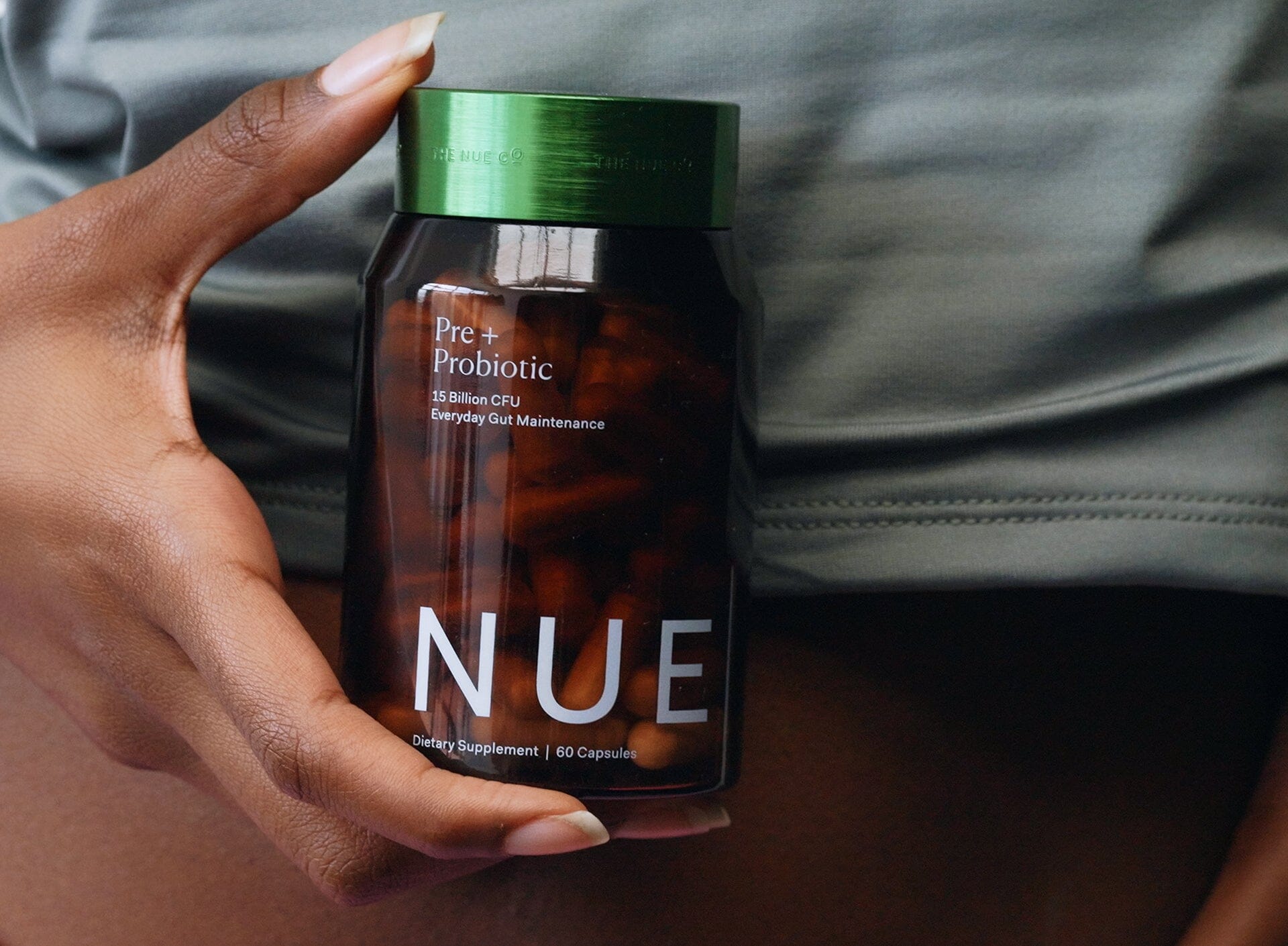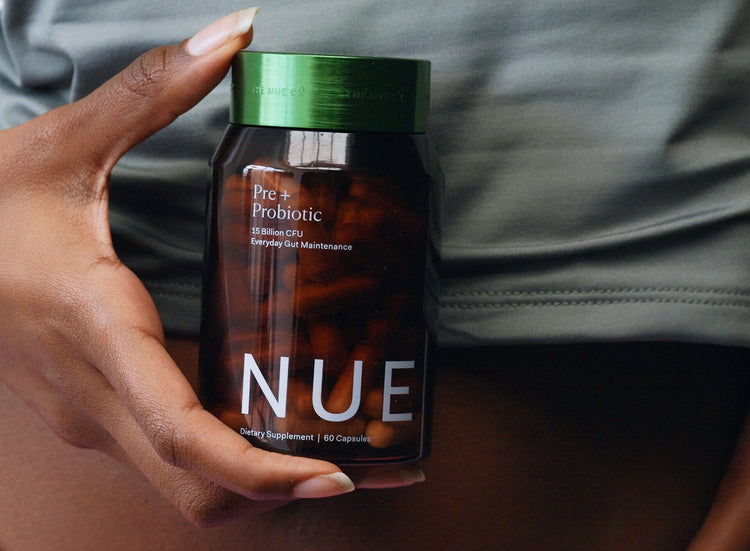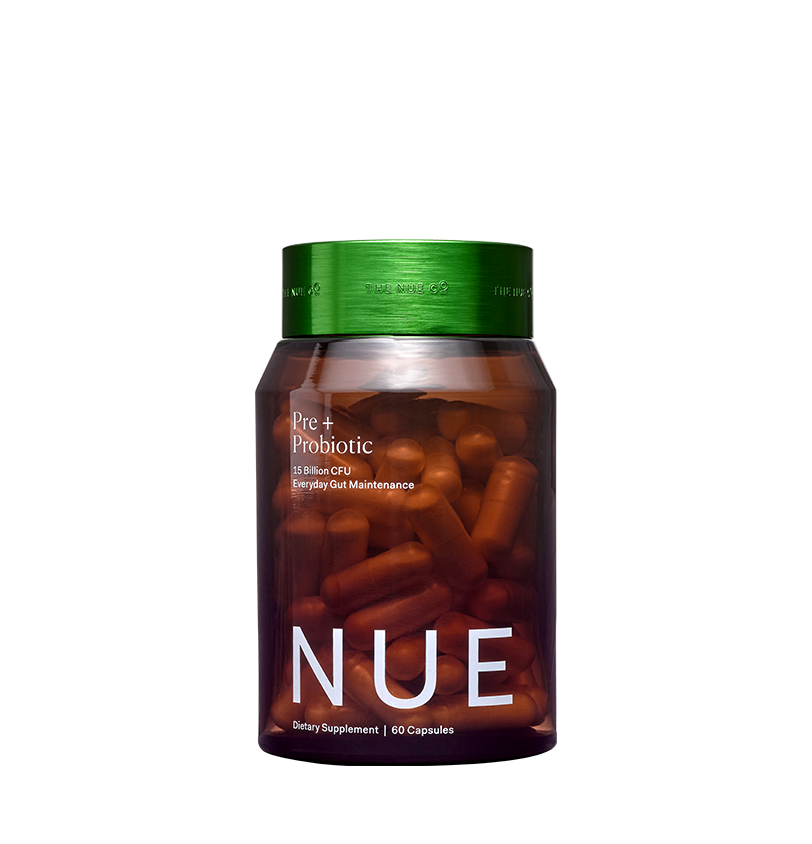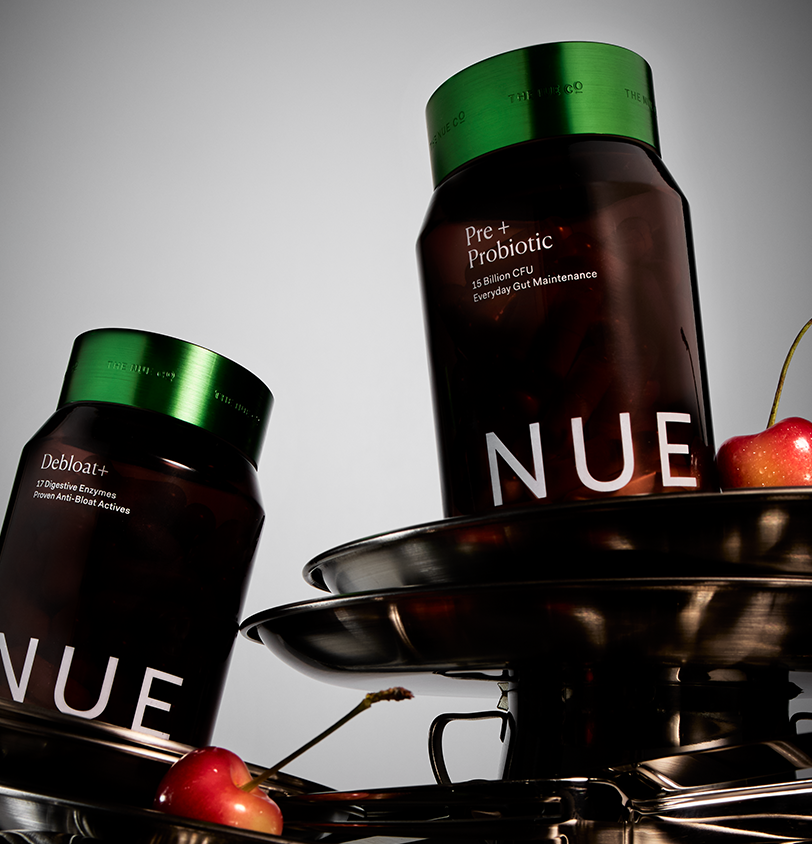Why Taking Probiotics Without Prebiotics is a Waste of Time


If you’ve been on a Googling spree about gut health and the microbiome, you’ve probably seen a lot of weird facts (namely the ‘drinking olive oil healed my gut’ TikTok videos - which gets a hard ‘no’ from us).
So, we sat down with Dr Evette Hillman (PhD), our in-house expert in gut health and the microbiome, to get the real facts. And some might surprise you…
Scroll to see why taking probiotics without prebiotics is a waste of time, along with other nuggets of knowledge backed by scientists, not just influencers.
1. You are more bacteria than human
“A study in 2016 showed we have more bacterial cells in our body than human cells,” explains Dr Hillman. “Over thousands of years, microorganisms have co-evolved with their human host. They have evolved in a sort of symbiosis. Therefore, these cells and their subsequent genes often have mutual and beneficial outcomes.”
Our bacterial cells and human cells need each other - working together to support our body in its daily functions. It’s why supplementing with pre- and probiotics can improve our health, feeding and fertilising healthy bacteria in the gut to support the rest of our cells.
2. Your microbiome knows if you were breastfed
Your gut microbiome is a collection of beneficial bacteria, supporting everything from strong digestion to hormone production to immunity. And it has a good memory.
“Looking at the microbiome, you can see if toddlers were born by Cesarean birth or by vaginal birth, whether they were breast fed or not,” says Dr Hillman. “Your microbiome is as unique as your fingerprint. The reason is that your colonised bacteria, once they actually attach themselves to the intestinal wall, usually don't change.” They stay with you as part of your unique makeup for life.
3. IBS is the most diagnosed gastrointestinal disease in the West
“It's estimated that 10 to 15% of the population in the US and the UK have IBS yet, only 5 to 7% of adults have been diagnosed with this disease,” explains Dr Hillman. “And therefore the solution for the treatment of this disease has to reside in self-care, because we don't have an infrastructure that is built to cope with that many people.”
This is where pre- and probiotics can support, with several studies proving these healthy strains of bacteria can improve common IBS symptoms like bloating, gas, constipation and diarrhoea.
4. We can’t break down some fibre
There’s a general knowledge that eating more fibre will help you in the bathroom department (especially if you’ve been constipated). But it’s not strictly true.
“Our genes do not synthesise the enzymes that are necessary for the breakdown of fibre. Whereas a lot of bacterial species do,” explains Dr Hillman. “As we consume fibre-rich foods, our gut bacteria ferment these substances, producing vital metabolites that contribute to our overall wellbeing,” explains Dr Hillman. “From enhancing digestion to bolstering our immune system and reducing inflammation, the gut microbiome is the linchpin in translating fibre into its myriad health benefits.”
We need bacteria to break down fibre into metabolites, the medium through which our body communicates with our microbes.
“Fibre alone is not doing anything other than increasing our fecal bulk, which has a lot of benefits, but doesn’t help us in terms of metabolites,” says Evette.
5. The stomach is too acidic for some human cells
Did you know? The gut’s natural pH level lies at around 2, the same level as vinegar and lemon juice.
“It's an extremely acidic environment,” says Dr Hillman. “Most cells, including our cells that have a mechanism to cope with [the acid] in our stomach, can’t even handle it.”
Many pre- and probiotic formulas use live bacteria, which is notoriously hard to stabilise - and often dies in its packaging before being ingested. PRE + PROBIOTIC is formulated with 15 billion spores of Bacillus Coagulans. One study on this particular strain showed 92% of spores survived in transit. Why do spore-based bacteria work so much better than live bacteria?
"The spore’s coat also provides resistance to many other reactive chemicals throughout the digestive tract. These key features grant them a greater survival rate through the stomach’s harsh environment.”
Rest assured: your PRE + PROBIOTIC capsules will only activate once in the small intestine, ready to feed and fertilise the healthy bacteria that live there.
6. Taking prebiotics without probiotics is a waste of time
Why do we need both?
In short: prebiotics are food for probiotics.
Some say we don’t need prebiotics. We think differently.
“Effectively it doesn't make sense because that is what the probiotics are feeding from. And so, as to my scientific knowledge, I totally disagree that you don't need prebiotics,” says Dr Hillman.
Learned something new about gut health? Find out more about our hero formula PRE + PROBIOTIC and what it can do in 24 hours.

